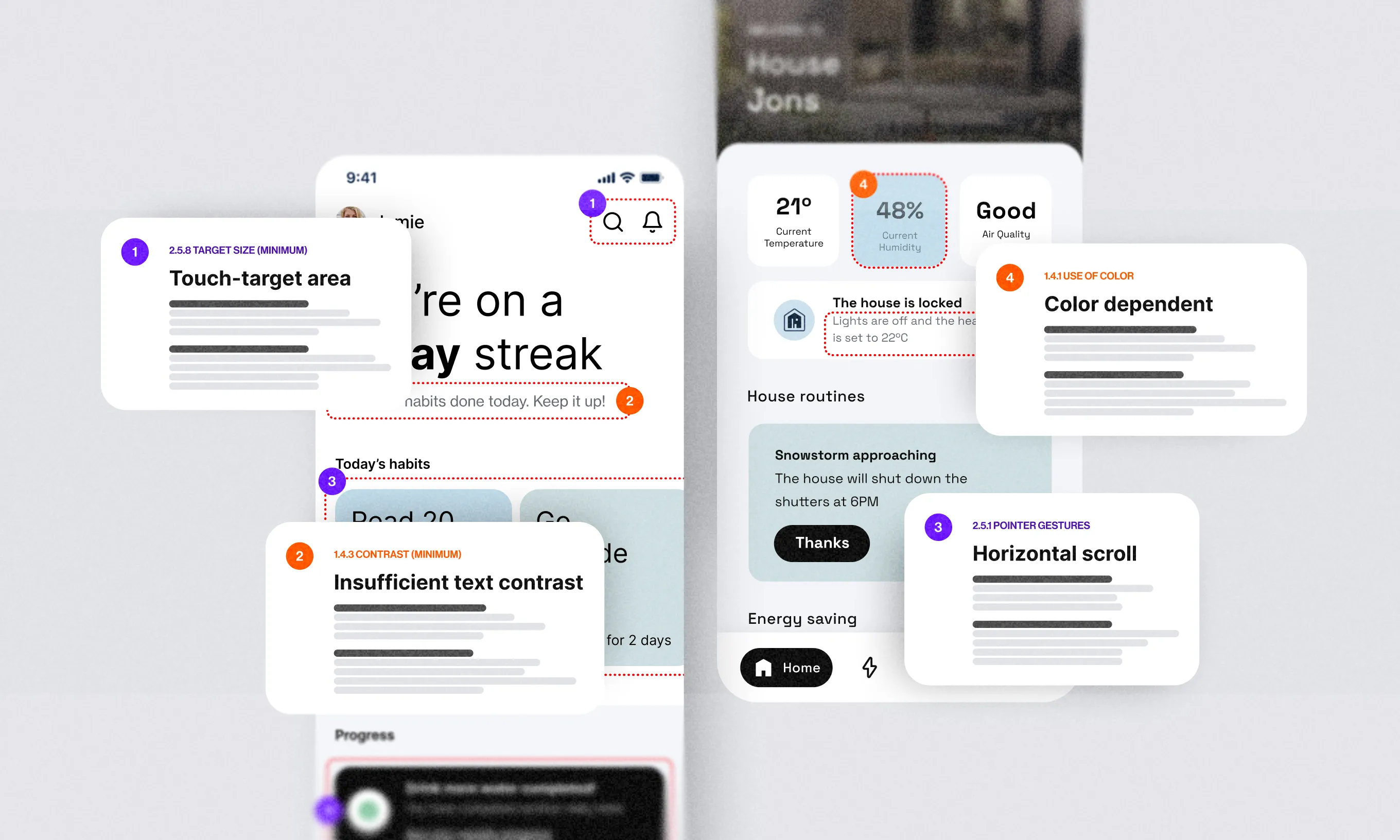Deciding between an in-house team and an outsourced development team can be a tough call. It’s not just about who builds the app – it’s about finding the right fit for your needs, business goals, and resources. Discover the key factors driving this choice.
In today’s world, a digital product is a business’s storefront – no question about it. Whether you’re an innovative biotech startup or an antique shop, you can hardly do without a digital solution supporting your business activities. The question is, what’s the best way to obtain such an asset?
Many companies planning development projects face the dilemma of building a digital product in-house or going with an outsourced development team. We’ve already explored the pros and cons of each option, and this time, we’re taking a different perspective – focusing on the factors that drive this decision. When choosing between an outsourced team or keeping your project an internal affair, what should you be considering? We’ve identified some key factors that can help you decide.
Timing matters
Time is always of the essence, but in some cases, it can be a critical factor for the project’s success. If you have very strict deadlines because an investment hinges on it, your marketing strategy dictates it, or there are other business reasons why you must have a product in the market by a specific date, an outsourced development team is usually a much safer bet.
If you’re pressed for time, an agency can help you get the project off the ground while giving you space and time to build an in-house team gradually.
Agencies are an out-of-the-box solution. When we put our scheduling department on the task, we can pull together a skilled team tailored to your needs that is ready to go in no time.
This approach also works if you plan on building an internal team in the future but simply can’t manage it in due time. Startups, for example, will often find themselves in these circumstances. If you’re pressed for time, an agency can help you get the project off the ground while giving you space and time to build an in-house team gradually.
This situation can also benefit from the team augmentation model and, on an even larger scale, take the form of a Build-Operate-Transfer partnership.
The product’s order of importance
When deciding between building in-house or with an outsourced development team, the importance of the product to your business is a significant factor. Sometimes, the digital product is in a supporting role, and sometimes, it is the star of the show.
For example, if your business is fintech or e-commerce, your app is your business. It is the main channel through which you acquire revenue and absolutely essential for your operations. If that is the case, you would likely want to build and maintain it in-house. Think about Robinhood or Shopify. These companies will need a dedicated team working on their apps as long as they exist in the business.
On the other hand, if you are not primarily or exclusively digital, it might be better to outsource your project. In this scenario, an app can be a great asset for upgrading your business, attracting more customers, improving internal operations, or opening new paths to revenue, but it is not the single most important asset everything hinges on.
Think loyalty apps, companion apps for physical products, and apps that are an extended arm of the offline business. If technology isn’t your core business but more of a facilitator, you can confidently outsource the building and maintenance of your digital product to an external partner.
Testing the waters
Sometimes, the product you are building is not essential for your core business but more of an experimental venture into a new field. Maybe you already manage several successful digital products, but you are looking to innovate further. Your team has a killer idea, and you decided to allocate some time and a part of your budget to see if it works.
This is a clear situation where we wouldn’t recommend building an internal team. Hiring requires a long-term perspective, and if you’re yet to learn whether your new venture is viable, an outsourced development team can be a perfect interim solution.
By the way, regardless of whether you’re keeping things in-house or outsourcing, we’d always recommend conducting a discovery workshop before you kick off a project. It’s a great tactic for de-risking your product and immediately validating your innovative idea.
Niche technology needs
When the project requirements dictate some very specific expertise or type of technology, an outsourced team can be of great help. Finding and retaining experts with niche technical knowledge may be challenging and definitely not worth the effort if your need for that expertise is project-based and time-limited.
This may easily be the case with emerging technologies such as IoT and AI. These fields are undergoing rapid development, and keeping up with all the advancements might not be simple for a less tech-oriented company. On the other hand, tech companies have a laser focus on emerging technologies and will be able to supply skilled experts specialized in precisely what you need.
Budget constraints and flexibility
Cost savings are often a key factor when deciding whether to use an in-house or an outsourced development team. Though at first glance hiring an agency might seem costly (and you might be concerned about digital products’ elusive price tags), opting for an outsourced team can actually provide greater budget predictability and efficiency.
Working with an experienced team, you reduce the risk of costly delays or mistakes, which helps you to stay within budget while still meeting your project goals.
Hiring, onboarding, and retaining an in-house team comes with its own set of hidden costs. Recruiting top talent is time-consuming and cost-intensive, and retaining skilled developers requires competitive salaries, benefits, and ongoing training. With an outsourced team, you gain access to a broader talent pool without the overhead costs, and you can allocate more of your budget directly to the development of your product.
Additionally, agencies have established teams with streamlined processes and specialized expertise, which means fewer inefficiencies during the project lifecycle. Working with an experienced team, you reduce the risk of costly delays or mistakes, which helps you to stay within budget while still meeting your project goals.
An outsourced team also provides scalability. Instead of committing to long-term internal hires, you can adjust the team size and skillset based on your needs at different stages of the project. This flexibility means you’re only paying for the resources you need when you need them, making it much easier to manage your budget effectively.
Making the call: an in-house or an outsourced development team?
When making the call between an in-house team and an outsourced development team, it’s important to understand the various factors at play. Tight deadlines, experimental ventures, or niche technology requirements can mean outsourcing is the best way to get the speed, flexibility, and expertise your project needs.
Other times, especially when you have a long-term vision and a product that is central to your business, keeping both the project and the team under your roof might be a better route.
Hopefully, the factors outlined above have helped you see the decision from multiple perspectives. If you’d like to discuss these further and explore what an expert outsourced development team could bring to your project, we’re here to talk.










